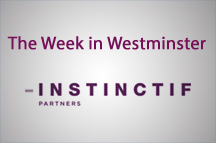 David Cameron’s conference speech was declared a success, Ed Miliband’s led to speculation about his future, but only Nick Clegg faced speculation that he would actually resign during his conference speech on 8th October. In the end though he spoke with great confidence, and without a sense of regret over the hard choices of government, although reflecting Lib Dem disappointment that their achievements are not appreciated. He expressed a clear vision of the future with the idea that the party would “borrow less than Labour“ but “cut less than the Tories.”
David Cameron’s conference speech was declared a success, Ed Miliband’s led to speculation about his future, but only Nick Clegg faced speculation that he would actually resign during his conference speech on 8th October. In the end though he spoke with great confidence, and without a sense of regret over the hard choices of government, although reflecting Lib Dem disappointment that their achievements are not appreciated. He expressed a clear vision of the future with the idea that the party would “borrow less than Labour“ but “cut less than the Tories.”
Winning
Overall the conference was surprisingly upbeat. Delegates were making a big effort not to talk about future leadership issues, although a lot of quiet campaigning was clearly going on. The reality though is that whatever problems the other parties have the Liberal Democrats have bigger ones. They are fighting to be the fourth party in the opinion polls and are set to lose half their seats next year. If the Lib Dems don’t seem alarmed about this perhaps that is because they believe that winning doesn’t matter, or at least shouldn’t matter. This attitude was expressed through a motion on football declaring that “Conference is concerned winning has become the primary motive in the sport".
Perhaps the real reason the Lib Dems think winning doesn’t matter is that they don’t need to in order to stay in office. Much of this week’s media coverage has consisted of a bizarre new form of Kremlinology in which pundits work out on what terms the Lib Dems would join a Coalition with the other parties.
Overall the social democrats seemed more in the ascendant than the economically liberal Orange bookers, and this was reflected in the announcements. Nick Clegg repeated Cameron’s pledge to raise the basic rate personal income tax allowance, but disowned the plan to raise the threshold at which the higher rate kicks in. There were also some strong announcements on mental health, and perhaps most relevant for future, demands for big concessions in return for agreeing to any future referendum on Europe. The one truly distinctive feature of Lib Dem conference is internal democracy. This has been the week in which Julian Huppert MP earnestly tweeted about the need for delegates to get down to the hall and vote for Amendment 4.
UKIP rises

Back in London other political news has been on the front pages. This coverage has reflected the narrative emerging from the previous party conferences: that Cameron is up and Miliband is down, but that UKIP still might bring Cameron back down. A Carswell victory in Clacton was long assumed, although such a strong UKIP showing in Heywood and Middleton illustrates a growing threat to Labour, but eyes will now turn to Rochester and Strood. Will this Medway town be Farage’s big breakthrough? If so that would certainly be ironic, it being the site of the breakthrough by the Roman army in AD43 which led to Britain being brought into its first political union with the rest of Europe.














